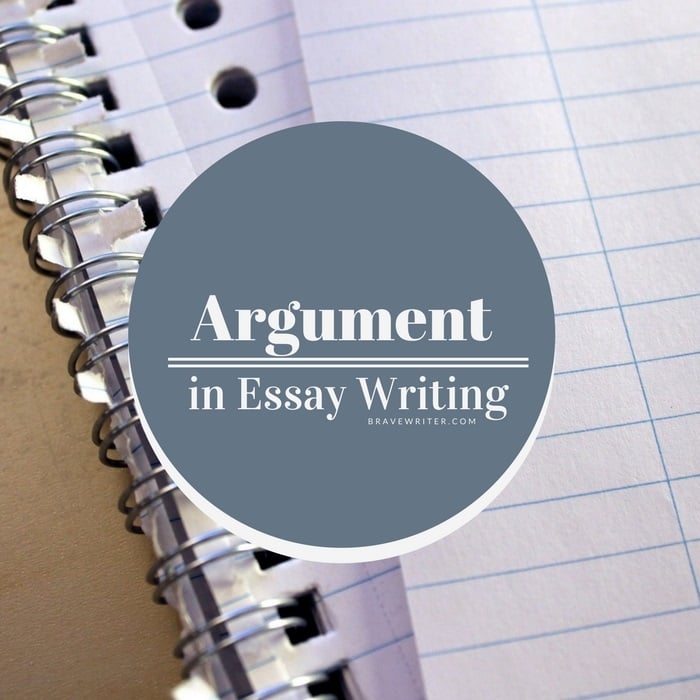Argument in Essay Writing

When I taught juniors and seniors advanced composition at our co-op, I had the students discuss the concept of arguing.
Essay writing is dependent on crafting a well-supported argument. The writer:
- makes an assertion,
- looks at the facts,
- and offers a reasonable explanation (interpretation) of the facts that supports the assertion.
Still, something else happened when we discussed the word “argument.” Before I gave it its rhetorical sense, my students defined it in terms of their experiences of arguing, especially arguing with parents.
Here are some of the things they wrote in freewrites about arguing:
“You know you are arguing when you find yourself feeling like you are being attacked or everything you say is being challenged.”
“I know that my coming of age next year will win this war, but I also enjoy sticking my foot out in front of theirs to prove my point.”
“When two people argue over what they think is better, nothing changes; nobody wins.”
“An argument is when a normal discussion turns for the worse; voices are raised and tempers flare.”
“You want to force your opinions on someone who has no interest in hearing them.”
“I like to argue when I’m right and I win the argument and the other person is left with nothing else to say.”
“Also when I am really passionate about something, my arguments become less logical and more emotional (tears and yelling) which I feel weakens my point.”
Notice that these comments set up a zero sum game where there is a winner and loser. Even when someone agrees that there can be good that comes from the arguing, the typical route to getting there can involve raised voices or trampling on the feelings of the other.
It was stunning to think that when we teach the essay and use the term “argument” that we are tapping into these deeper scripts about what arguing is. Poorly written essays resemble rants. Students find themselves mimicking the passion they hear on talk radio or the nightly news when two sides are pitted against each other in a free-for-all.
Yet essay writing transforms our understanding of “argument.” Rather than seeing the essay as a win/lose proposition, we are asked to “propose” a possible interpretation of the facts that invites challenge. In other words, essay writing is not about “proofs” or “winning an argument” after all. Essays are attempts to make sense of data at a point in time.
For more information on essay writing, check out Help for High School and our online writing classes for teens.

















